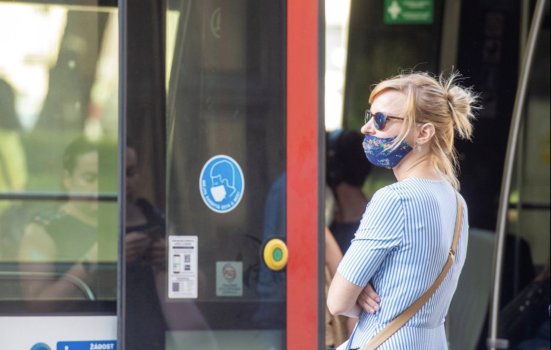Anushka Mansharamani
Supreme Court bench headed by Justice Ashok Bhushan observed that not wearing masks in the pubic violates the fundamental right to life guaranteed under Article 21 of the constitution of India. The Supreme Court further directed the States to rigorously impose the COVID-19 guidelines on masks and the social distancing norms as prescribed by the government.
Supreme Court also disagreed to the Gujarat High Court order that was passed on 1st December which directed all those not wearing a mask in public to do non-medical community service at COVID-19 centres for 10-15 days. The Apex court termed this punishment as “disproportionate”.
bench headed by Justice Ashok Bhushan observed that according to them people have manifested the lack of interest in following the social distancing norms and guidelines on masks laid down by the government and the authorities have been lukewarm towards the implementation of the guidelines and norms dictated by the government.
The other two members of the bench, Justices RS Reddy and MR Shah observed that not wearing of masks in the public affects not only the fundamental rights of other but also manages to hamper the health of the other people.
The Supreme Court further stated that the Union Health Ministry and the states have provided guidelines and procedures but there is a lack of implementation.
Tushar Mehta (solicitor general) who appeared on behalf of the Gujarat government and the State government stated that there was neither hide nor hair to infer that the police have been encouraging the trend. The bench, however, stated that the problem is not only of a particular state but is a problem across the nation and that the truth can be easily seen.
The bench stated that the lack or no implementation is taking place and everybody is moving around freely in the markets, malls and various sorts of ceremonies including marriage ceremonies. The bench then questioned Tushar Mehta asking him how this is happening and what is the police doing in such situations.
Tushar Mehta replied stating that the problem of implementation exists across the nation and suggested that measures such an increase in the fine for the offenders could be a viable option to make sure people follow the rules.
The bench disagreed with the suggestion stating that increasing the fine would not serve the purpose of proper implementation.
The bench also observed that the stay on the Gujarat High court order is not a viable punishment as it increases the health risks to the people. To this the Supreme Court made it clear that the stay order cannot be inferred to encourage the people to not wear masks in the public.
Therefore, the bench ordered the Additional Home Secretary of Gujarat to intensively implement the operating procedures, guidelines and norms and to also come up with certain guidelines that would help with the implementation of the same.
The Supreme Court of India further directed all the state government to submit certain ways that can be implemented to control public gatherings and ensure that people wear masks and follow the rules by 7th December 2020.
The bench further stated that after receiving the suggestions made by the state governments they would try or consider to implement them as not wearing of masks is imposing to be a threat to the country.

